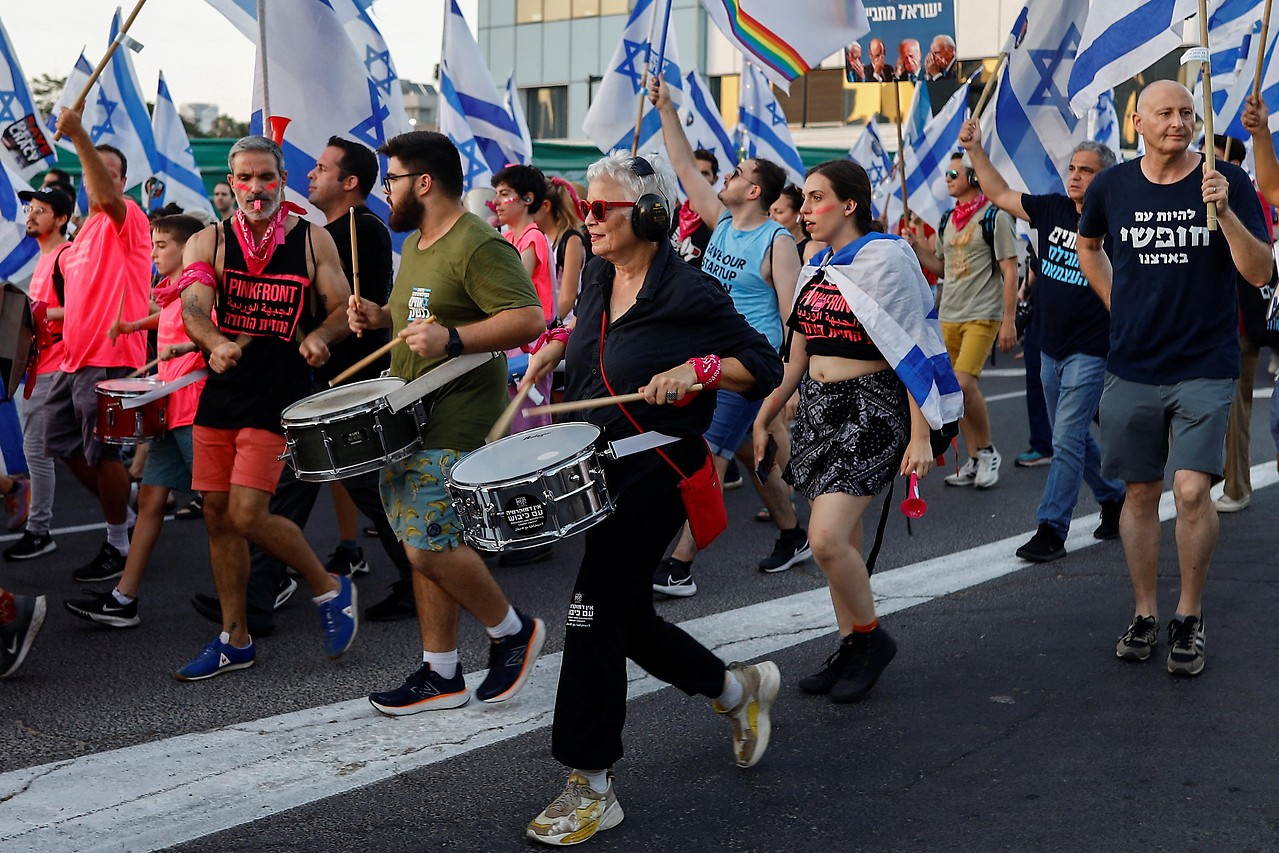The government of Israel wants to start implementing part of the judicial reform quickly: in about a week it wants to pass a law that will remove the power of the Supreme Court to evaluate decisions of the government or ministers as “inappropriate”. The bill is currently being prepared in the Judiciary Committee for a final vote in the House of Representatives.
Because of the bill, the protests are accelerating again. Critics fear the law will encourage corruption and the arbitrary filling of high office. The government accuses judges of excessive interference in political decisions.

More protests planned
The next rallies are already scheduled for Tuesday. On the “Day of Resistance”, among other things, roads across the country will be closed again. On Saturday, according to Haaretz, many dissidents, including well-known ones, spoke out from politics, among other things, to demonstrators in Tel Aviv and several other cities.
On Tuesday only were demonstrations in Jerusalem, Tel Aviv and municipalities in the center of the country after parliament approved a bill to limit the powers of the Supreme Court in the first of three readings overnight. Nearly 80 people have been arrested, according to Haaretz. The demonstrators waved Israeli flags and lit beacons. Police sometimes used water cannons and mounted units against protesters.

Reservists want to refuse to serve
Meanwhile, hundreds of reservists announced that they would no longer wish to take up their duties should the law go into effect. Hundreds more could follow suit. On Tuesday, 300 Defense Department cyber reservists did not show up for duty. In protest of the reform, many reservists did not show up for service in the past.
He also threatened more than a thousand doctors to walk out. They fear that judicial reform could have a negative impact on the country’s economy, democracy and security – and by extension the health system as well.
Earlier this year, the Supreme Court opposed the appointment of Netanyahu’s favorite minister, Ari Deri, leader of the Shas party. The judges argued that the appointment to the position of Minister of Home Affairs and Health was “inappropriate” and therefore void due to Derris’ multiple convictions, including corruption and tax evasion. Netanyahu then forced Deri’s dismissal, but accused the court of ignoring the will of the voters.
The government is pushing the plans
Netanyahu, who is on trial for corruption, met with opponents of reform at the end of June and announced that he would drop the most controversial part. This would have allowed Parliament to overturn Supreme Court decisions.
Due to mass protests, Netanyahu suspended the project at the end of March. No compromise was reached with the opposition mediated by President Isaac Herzog. At the end of June, the two main opposition politicians, Gair Lapid and Benny Ganz, suspended their participation in the talks. The opposition voted unanimously in parliament on Monday against restructuring the judiciary.
More contested votes in the fall
Another goal of the government’s plans is to give politicians more influence in appointing judges. According to media reports, this basic reform project is scheduled to be included in the agenda of the next session in the fall.
The State of Israel has no written constitution and is based instead on a set of basic laws. Thus, the Supreme Court is of particular importance when it comes to upholding the rule of law and human rights.

“Food practitioner. Bacon guru. Infuriatingly humble zombie enthusiast. Total student.”








More Stories
Kyiv: Russian Kursk offensive halted
US Presidential Election: Former US Government Officials Warn Against Donald Trump's Election
Netherlands wants to leave asylum system